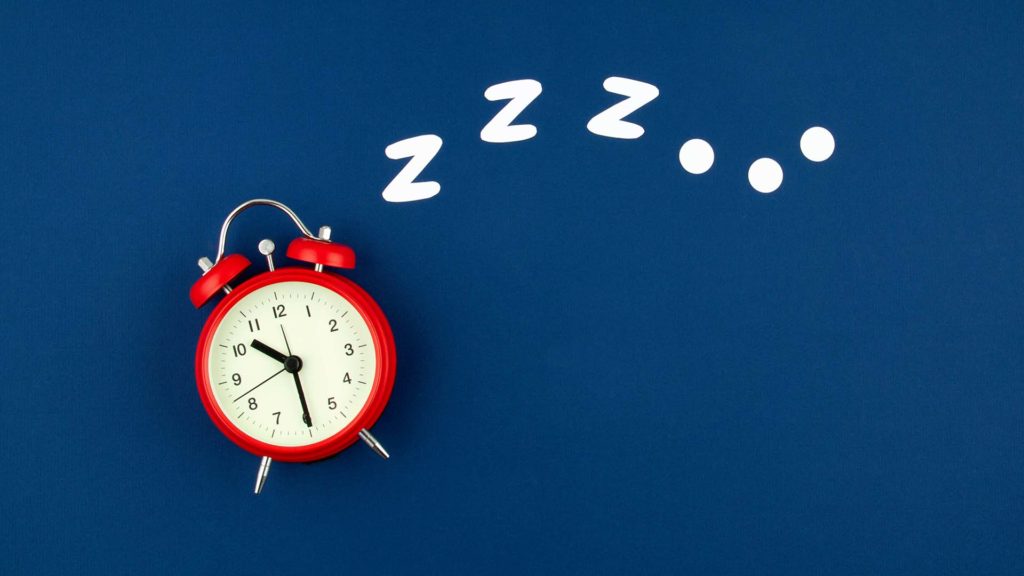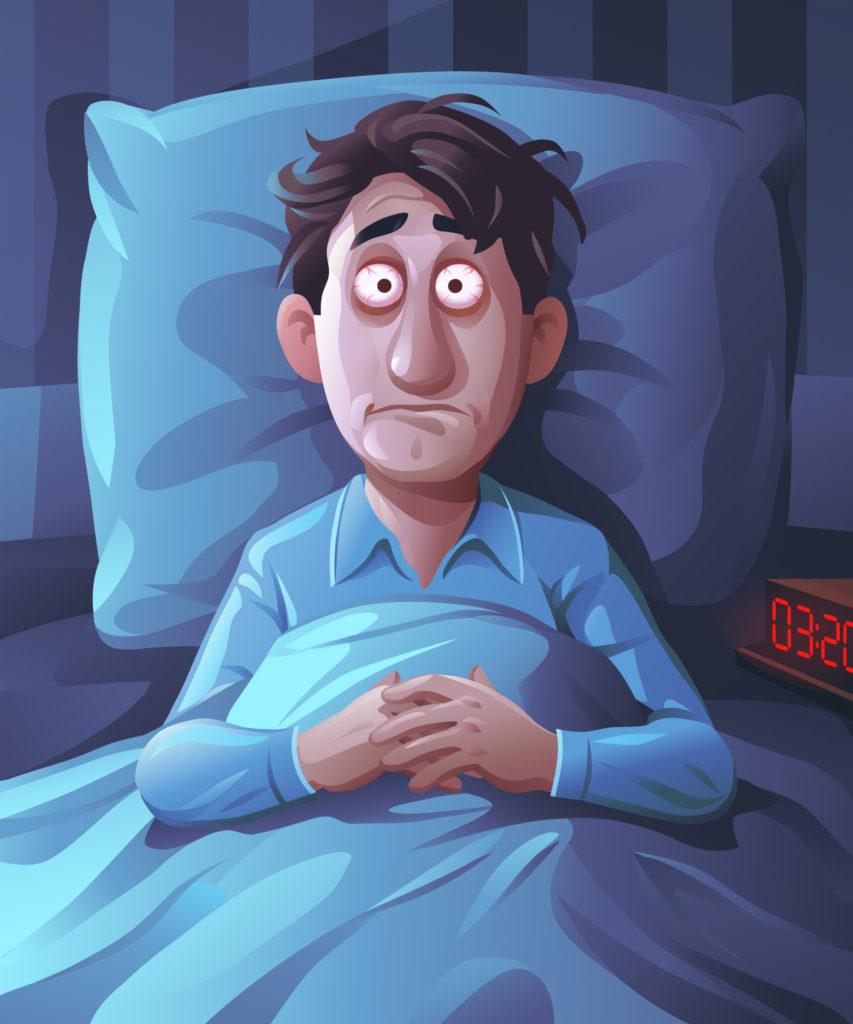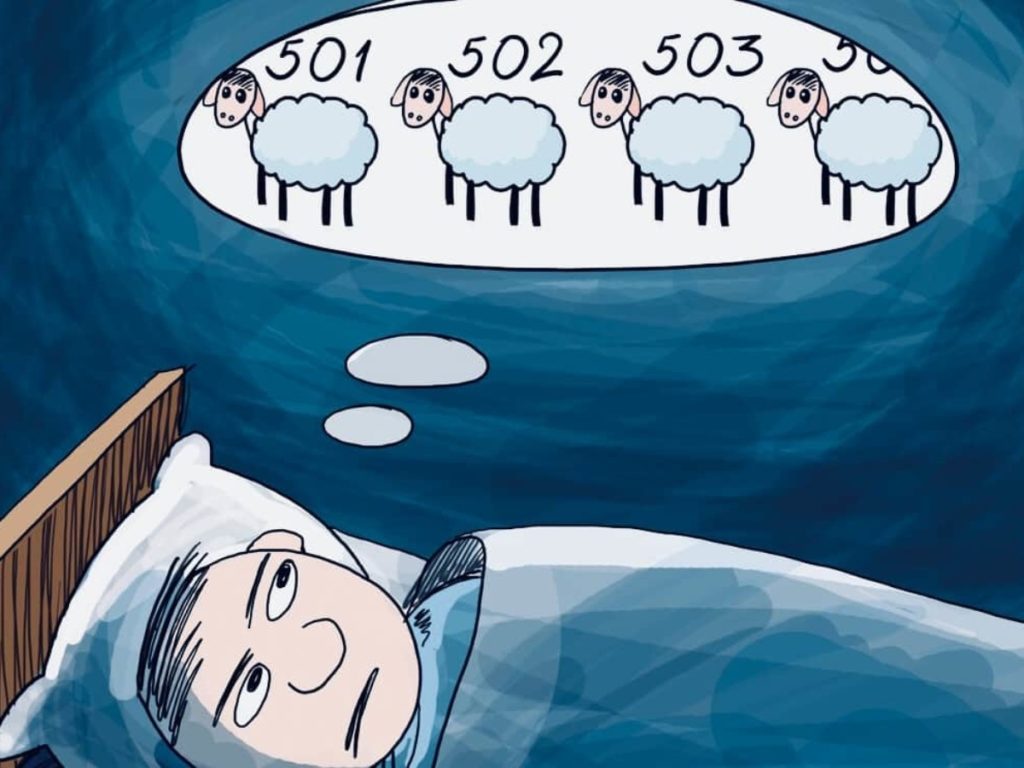
What physiological activity takes up the largest part of our lives? Of course, sleep for which we spend 25-35% of the time, which means a minimum of quarter of our expected life. Therefore, it is surprising how little we ourselves, as well as medicine and lifestyle recommendations, attach importance to the importance of sleep for health and daily functioning.
The scientific achievements of recent years prove, however, that underestimated sleep plays an important role for our well-being, joy in life, success in study and work, the body’s immunity, and also for the risk of many diseases. So, it is worth learning more about sleep and its importance to your health.
What is the importance of sleep for our health?

Sleep is not just shutting down consciousness for a while. Despite the reduced activity and energy consumption during sleep, many beneficial biological processes take place in the brain and throughout the body. In short, the most important phenomena are:
• organization and recording of information, getting rid of unnecessary “garbage” from memory – sleep deficiency makes it difficult or even impossible to learn, cognition and remember;
• reorganization and communication between nerve cells – sleep deprivation makes the brain work much worse over time;
• rest and renewal of most tissues and organs of the whole body, as well as the production of beneficial amines and hormones – without sufficiently long sleep, the body has no chance to regenerate, during adolescence for proper development and growth, and in the later stages of life to rebuild damaged cells and accumulate energy , or “recharging the batteries”.
The above processes are essential for health – without sleep, our body cannot function properly.
Sleep is a complex physiological process in which we can distinguish two basic, alternating stages:
• without rapid eye movement (NREM)
• with rapid eye movement (REM).
The NREM phase, which is divided into several more stages depending on the depth of sleep, is longer and allows you to rest and renew your energy. During a much more active REM phase, the brain is more stimulated, and then dreams are formed. Both stages of sleep are needed to consolidate memory and regenerate thinking. Each sleep cycle, averaging around 80-120 minutes, consists of both the NREM and REM stages in varying proportions. For full sleep we need 4-6 sleep cycles, depending on their length and genetic conditions.
The precious influence of sleep on health and psyche has been known for a long time, but only scientific research conducted in recent years has allowed to confirm its importance in the proper functioning of the body. The consequences of sleep deprivation can be:
• decrease in cognitive abilities and concentration, difficulties in learning and remembering;
• mood disorders, anxiety and even depression;
• weaker physical capacity, easier fatigue, deterioration of sports performance;
• decrease in immune resistance, greater susceptibility to infections and infections;
• metabolic disorders leading to overweight or even obesity;
• Increasing the risk of chronic diseases such as diabetes, high blood pressure and other cardiac diseases such as arrhythmias.
In summary, more serious disorders leading to long-term deficiency as well as poor sleep quality can even lead to early death, and certainly shorten the life of healthy and fit.
How can sleep affect our health so broadly?

It is easiest to understand the negative impact of lack of sleep on mental clarity, memory and learning ability, as probably everyone has had this experience while preparing for an exam or an urgent task at work.
In simple terms, the memorization process can be divided into 3 stages:
1. cognitive when we learn or experience something new,
2. consolidation, when we consolidate remembering in the brain i
3. reminders – when we use information stored in memory.
Sleep deprivation negatively affects all stages, especially it worsens the functioning of memory consolidation. Both long-term and short-term memory are then disturbed.
Sleep, stress, and condition

Sleep problems are inseparably linked with stress, mood disorders, depression, and other mental illnesses. As a result of too short or even lost sleep phases, the secretion of neurotransmitters and stress hormones is disturbed, which causes deterioration of thinking, states of nervousness and other negative emotional reactions, and intensification of psychological symptoms, especially in the case of already existing mental health problems. Equally, difficulty falling asleep, waking up at night and in the morning can be an early symptom of unconscious stress, or even more serious mood disorders, anxiety reactions, or depression – people with insomnia have a 10-fold higher risk of this serious illness.
Therefore, sleep problems can be both one of the causes of mental problems and one of the symptoms and factors that aggravate this type of ailments. What is more, statistically, men who sleep 4-5 hours have testosterone levels similar to those of men ten years older.
Sleep among athletes

Adequate sleep is a prerequisite for good physical condition and achieving results, as all professional athletes know. Virtually all of the above-mentioned areas that are affected by sleep are important for physical and mental performance, which is equally important for sports competition.
Sleep deprivation results in deterioration of motor coordination, faster fatigue as a result of abnormal metabolic functions, lengthy reaction time and often an increased risk of injury, as well as prolonged time needed for rest and regeneration after exercise. Sleep is important not only for athletes, but for everyone who cares about an active lifestyle, because the health-promoting effects of exercise in a fitness club or recreational jogging may simply be difficult or eliminated due to sleep deficiencies.
Proper sleep has a significant positive effect on the immune system, and it lack or deficiency results in a reduction in immunity. Studies have shown that in the case of sleep deprivation, the number of defense Th1 cells decreases and the level of inflammatory cytokines increases. As a result, our resistance to infections and infections is lowered. Sleep also helps with other natural defenses of the body, such as fever. As we know, the temperature rises in the afternoon and evening hours and at night, and during an infection we sleep a lot, thanks to which the body has a chance to fight the infection.
Sleep deprivation and chronic diseases

When there is a lack of sleep, this fight against pathogens is difficult. Permanent sleep deprivation can permanently damage the immune system, dramatically reduce the level of NK immune cells (Natural Killer, responsible for the destruction of cancer cells and virus-infected cells) and cause symptoms of chronic inflammation, such as an increase in the level of C-reactive protein (inflammatory marker). It is associated with an increased risk of diabetes, heart disease and cancer.
It is specifically the increased risk of serious chronic diseases that is becoming one of the key arguments for the importance of sleep for health. Overweight and obesity, high blood pressure, and other heart conditions including arrhythmias (arrhythmias) are more common in people who sleep too shortly or suffer from insomnia, as well as more serious illnesses such as obstructive sleep apnea. There is strong evidence that sleep deprivation, together with being overweight, are important factors in the development of type 2 diabetes (known as non-insulin dependent diabetes, occurring mainly in adults), and improving sleep quality may improve treatment outcomes, including normalization of blood sugar levels.
In addition, people with abnormal sleep patterns, such as shift work, have an increased risk of certain types of cancer: breast cancer in women or prostate cancer in men. More research is needed into the relationship between sleep and the risk of chronic disease to determine what causes and effects, but regardless of this, it appears that a lack of proper sleep plays a role in their development and treatment effectiveness.
Many scientific reports have found an increased mortality in people sleeping less than 6 hours. per day who have difficulty falling asleep or experience insufficient recovery during sleep.
Sleep disturbance

There are several types of sleep disturbance, ranging from fairly mild to severe and even life-threatening. The most common problem is insomnia – it is estimated that about 50-70 million, almost every third American adult, has problems with sleep. Comparing this scale to the population in Poland, it can be assumed that 7–8 million Poles suffer from chronic or periodic sleep deficiencies.
Insomnia is characterized by difficulty falling asleep and / or an inability to maintain adequate sleep length, such as waking up in the middle of the night or in the morning and taking a long break or waking up until you get out of bed. There can be many causes of insomnia: from temporary stress or anxiety reactions, already described mental problems or illnesses, to symptoms resulting from other medical conditions or the effects of certain medications. Bad habits are also a frequent cause, such as excessive exposure to blue light in the evening (smartphone or laptop screen), late meals, drinking alcohol or coffee, lack of exercise, or such simple matters as not proper place and sleeping conditions (high temperature in the bedroom, uncomfortable bed), etc.

Important from the point of view of serious consequences is the so-called obstructive sleep apnea. It is a relatively common disease, especially in obese men, and is still rarely diagnosed. It is characterized by snoring, unconscious periods of sleep apnea, leading to cerebral hypoxia and profound sleep disturbance, resulting in a lack of rest and recovery after the night. The causes of sleep apnea are most often anatomical and require specialized treatment.

Whatever its causes, insomnia worsens quality of life, worsens productivity at work, and increases the risk of disease, so it requires intervention, and often medical attention and specialized therapy. But first, it is worth confirming our sleep to verify if we have too little and what quality it is. It is assumed that the desired length of sleep per day varies with age:
• school children (5-12 years) – 9-12 hours;
• teenagers (13-17 years old) – 8-10 hours;
• adults (18-64 years) – 7-9 hours;
• elderly people (over 65) – 7-8 hours.
I wonder how many of us manage to sleep regularly for so long. In addition, it is important for the quality of sleep to fall asleep within 15-20 minutes of going to bed, lack of longer breaks during sleep and spontaneous wake up rather than being woken up by an alarm clock in the middle of the sleep phase. Taking naps during the day (siesta), although rated positive, do not count towards total sleep duration. In order to evaluate the length and quality of sleep, a diary can be kept over a period of time in order to record key data that will be helpful in planning behavior improvement and possible treatment of insomnia.
Good habits for quality sleep

The last thing to consider in treating insomnia is swallowing sleeping pills. Specialists (according to the American Academy of Sleep Medicine) recommend that you first change your habits, including on:
• Regularity – you should go to bed and get up at the same time, whether on a weekday, weekend, or vacation. If you do not fall asleep in 20-30 minutes, get out of bed, read, or listen to some quiet, relaxing music, and go back to your bedroom when sleepy occurs.
• Taking care of the right conditions – darkness, silence, cool but pleasant temperature in the bedroom, a comfortable mattress, bedding, and nightwear made of natural materials.
• Not using electronic devices and not watching TV – at least 30 minutes before going to bed, and never in the bedroom. A short ten-minute meditation is also an effective method of preparing for bed.
• Avoiding eating a large dinner, coffee, strong tea, and alcohol – take a break of 2-3 hours before going to bed. You can eat a light snack when you feel hungry.
• Make sure you have enough healthy exercise throughout the day – but remember not to exercise late or just before going to bed.
Help and therapies

When the above interventions do not help, and sleep deprivation hampers our daily lives, it is worth seeking specialist help. Depending on the problem underlying your insomnia, you should consult a psychologist or sleep specialist. They will help in self-assessment of the sleep process, our habits and propose appropriate actions. Currently, it is believed that the method of choice is Cognitive-Behavioral Therapy for Insomnia (CBT-I), which focuses on overcoming misconceptions related to insomnia, working on excessive mental control, and developing correct habits.
Help and Pharmacological treatment

Only when this type of psychological intervention fails or there is a specific cause of insomnia, other individually tailored treatment options, including pharmacological ones, should be considered. Melatonin, often promoted as a drug indicated for sleeping difficulties, has a limited effect – it mainly helps to restore the circadian cycle after a long flight or in shift workers. Other medications, including sleeping pills and Para pharmaceuticals, should be taken with caution, only in the short term, preferably under the supervision and recommendation of a specialist. Studies show that we sleep too little, and the trend is worsening: even in the relatively short period between 2010 and 2018, the proportion of American adults sleeping less than 6 hours has increased from around 30% to over 35%. These unfavorable changes can be associated with the proliferation of smartphones and the excess of stimuli that bombard us all day long. If we do not improve our sleep, as well as maintain a healthy diet and nutrition, and ensure the minimum physical activity recommended, our prognosis for quality and life expectancy will worsen.
Wishing You all good night sleep !!!





